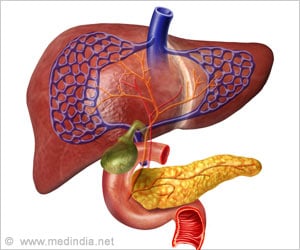Cromolyn sodium successfully blocked a series of cells that trigger liver scarring (known as fibrosis), which in advanced cases can lead to cirrhosis.

TOP INSIGHT
Primary sclerosing cholangitis (PSC) is a chronic disease that damages bile ducts and causes serious liver damage.
The finding, published in the journal Hepatology, could most impact patients with primary sclerosing cholangitis (PSC), a chronic disease that damages bile ducts and causes serious liver damage. The disease has no effective treatments and leaves patients with few options beyond a liver transplant.
In particular, the study evaluated mast cells (MCs), which are known to infiltrate and multiply after liver injury and release histamine, which causes fibrosis. Using a model that mimics human primary sclerosing cholangitis, researchers found that the drug successfully blocked that histamine, which in turn reduced fibrosis.
"Given the limited treatment options for PSC patients, we are thrilled with these study insights," Gianfranco Alpini, Director of the Digestive Disease Research Center at Baylor Scott & White, said. "We need to perform additional experiments to ensure that we are giving a dose that would be tolerable to humans," Francis pointed out.
Source-IANS
 MEDINDIA
MEDINDIA




 Email
Email










